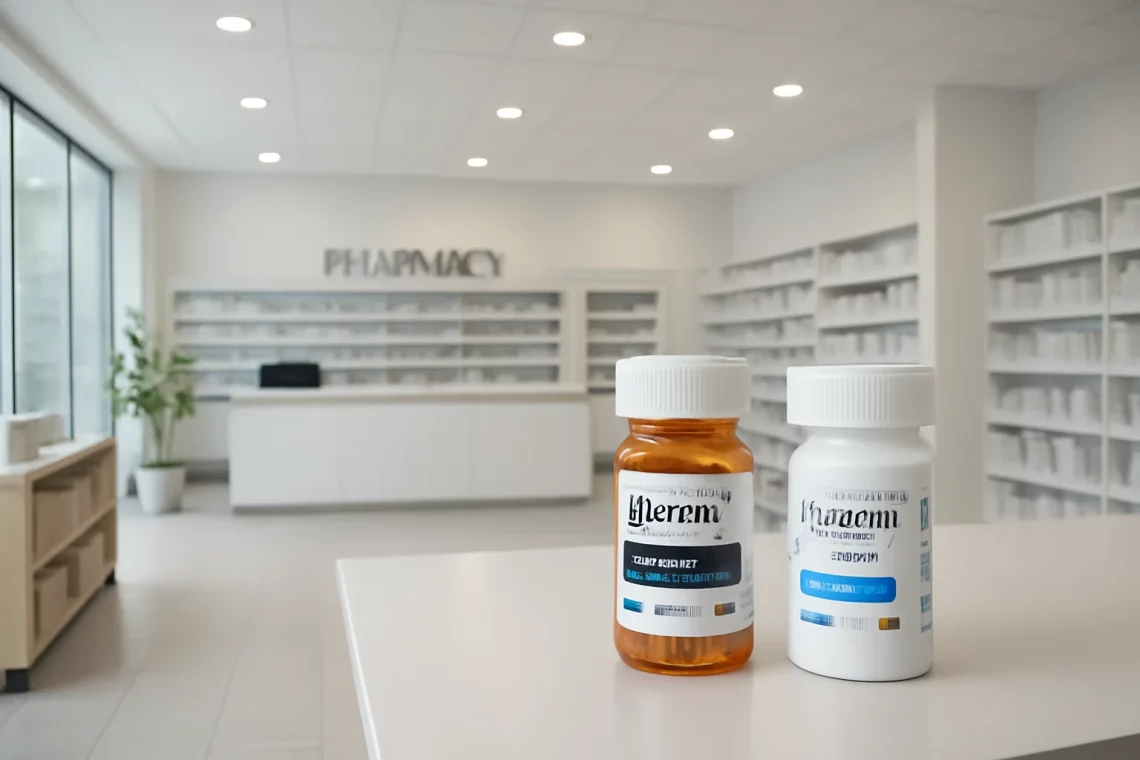
Adderall vs Vyvanse Which ADHD Medication is Right for You
Adderall and Vyvanse are two of the most commonly prescribed medications for Attention Deficit Hyperactivity Disorder (ADHD). Both drugs are known for their effectiveness in improving focus, attention, and impulse control in individuals diagnosed with ADHD. However, despite their similarities, they possess distinct differences in formulation, mechanism of action, side effects, and overall user experience. Understanding these differences can be crucial for patients, caregivers, and healthcare professionals in making informed decisions regarding treatment options.
As the prevalence of ADHD continues to rise, so does the need for effective management strategies. The choice between Adderall and Vyvanse can significantly impact an individual’s quality of life, and it is essential to consider various factors, including duration of effect, potential for abuse, and individual health profiles. This article will delve into the nuances of each medication, providing a comprehensive overview that aims to clarify the distinctions and aid in the selection process for those seeking treatment for ADHD.
Understanding Adderall
Adderall is a combination of amphetamine salts that is primarily used to treat ADHD. It consists of four different types of amphetamine, which work together to enhance the levels of neurotransmitters in the brain, particularly dopamine and norepinephrine. This stimulant effect helps to improve attention, focus, and self-control in individuals with ADHD.
One of the notable features of Adderall is its quick onset of action. Many users report feeling the effects within 30 minutes to an hour after taking the medication. This rapid response can be beneficial for those who need immediate relief from ADHD symptoms. Adderall is available in both immediate-release and extended-release formulations, allowing for flexibility in dosing based on individual needs.
However, the quick action of Adderall can also lead to a shorter duration of effect compared to some other ADHD medications. Immediate-release Adderall typically lasts around 4 to 6 hours, while the extended-release version can last up to 12 hours. This can require multiple doses throughout the day, which may not be ideal for everyone.
Another important consideration is the potential for abuse and dependency. As a controlled substance, Adderall has a high potential for misuse, particularly among individuals seeking its stimulant effects for academic or recreational purposes. This has led to increased scrutiny and regulation around its prescription and use.
Side effects of Adderall can vary from person to person but may include insomnia, decreased appetite, anxiety, and increased heart rate. It is essential for individuals considering Adderall to discuss their medical history and any potential risks with their healthcare provider.
Exploring Vyvanse
Vyvanse, or lisdexamfetamine, is another medication prescribed for ADHD, but it operates differently than Adderall. Vyvanse is a prodrug, meaning it is inactive until it is metabolized in the body. Once ingested, it is converted into dextroamphetamine, which then exerts its stimulant effects on the brain. This unique characteristic of Vyvanse results in a slower onset of action compared to Adderall.
Typically, users may start to feel the effects of Vyvanse within 1 to 2 hours after taking it, with the benefits lasting much longer—up to 14 hours in some cases. This long duration of action can be advantageous for individuals who require consistent symptom management throughout the day without the need for multiple doses.
Another significant difference between Vyvanse and Adderall is the lower risk of abuse associated with Vyvanse. Because it is a prodrug, it has a less immediate effect, making it less likely to be misused for recreational purposes. This may provide peace of mind for patients and parents concerned about the potential for addiction.
However, like any medication, Vyvanse is not without its side effects. Common side effects may include dry mouth, decreased appetite, insomnia, and anxiety. It is important for users to monitor their reactions to the medication and communicate any concerns to their healthcare provider.
Overall, Vyvanse presents a different approach to ADHD management, with its extended duration and lower abuse potential making it a suitable alternative for many patients.
Comparing the Efficacy and Side Effects
When comparing Adderall and Vyvanse, efficacy is often a primary concern for patients and healthcare providers alike. Both medications have been shown to effectively improve symptoms of ADHD; however, individual responses can vary significantly. Some individuals may find that Adderall works better for them, while others may prefer Vyvanse.
The choice between these medications may depend on various factors, including the severity of symptoms, lifestyle considerations, and personal sensitivity to side effects. Adderall’s quicker onset may be desirable for those needing immediate symptom relief, whereas the longer-lasting effects of Vyvanse may benefit individuals requiring stable control throughout the day.
Side effects are another critical area of comparison. Both medications can cause insomnia, anxiety, and appetite suppression, but the intensity and frequency of these side effects can differ. Some users of Adderall report more pronounced side effects, particularly when the medication is at its peak in the system. In contrast, Vyvanse’s gradual release may lead to a more stable experience with fewer peaks and valleys.
It is also essential to consider the potential for developing tolerance and dependence. Adderall, due to its formulation as a combination of amphetamines, may lead to tolerance more quickly in some users. Vyvanse’s prodrug status can mitigate this issue, making it a preferable choice for individuals concerned about the risk of dependency.
Ultimately, the decision between Adderall and Vyvanse should be made collaboratively between the patient and their healthcare provider, considering the individual’s specific needs, medical history, and lifestyle.
Making an Informed Decision
Choosing the right medication for ADHD is a crucial step in managing the condition effectively. It is essential for individuals to have open and honest discussions with their healthcare providers about their symptoms, concerns, and treatment goals. This collaborative approach can help ensure that the chosen medication aligns with the patient’s lifestyle and preferences.
Factors to consider when making this decision include the specific ADHD symptoms experienced, the presence of any co-existing medical conditions, and the individual’s response to previous treatments. Additionally, it is important to evaluate the potential side effects and how they might impact daily life.
Patients should also consider their daily routines and how each medication may fit into their schedule. For instance, those who prefer a single daily dose without the need for multiple administrations might lean towards Vyvanse, while others may appreciate the flexibility of Adderall’s dosing schedule.
Finally, regular follow-ups with a healthcare provider are essential for monitoring the medication’s effectiveness and making any necessary adjustments. ADHD management is often a dynamic process, requiring ongoing evaluation and adaptation.
In conclusion, both Adderall and Vyvanse offer effective treatment options for ADHD, each with unique benefits and considerations. By understanding these medications and their differences, individuals can make informed choices that enhance their quality of life.
**Disclaimer:** This article is not intended as medical advice. Always consult a healthcare professional for medical concerns and treatment options.




